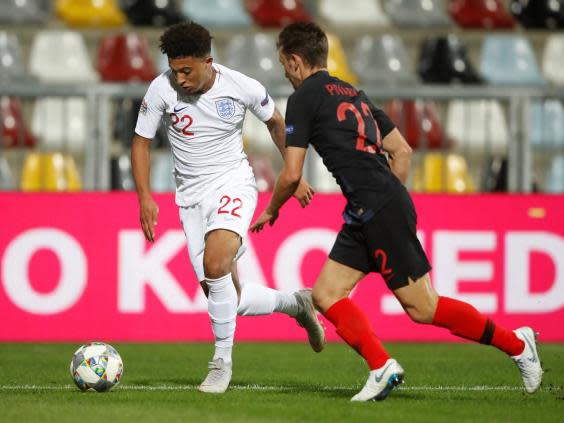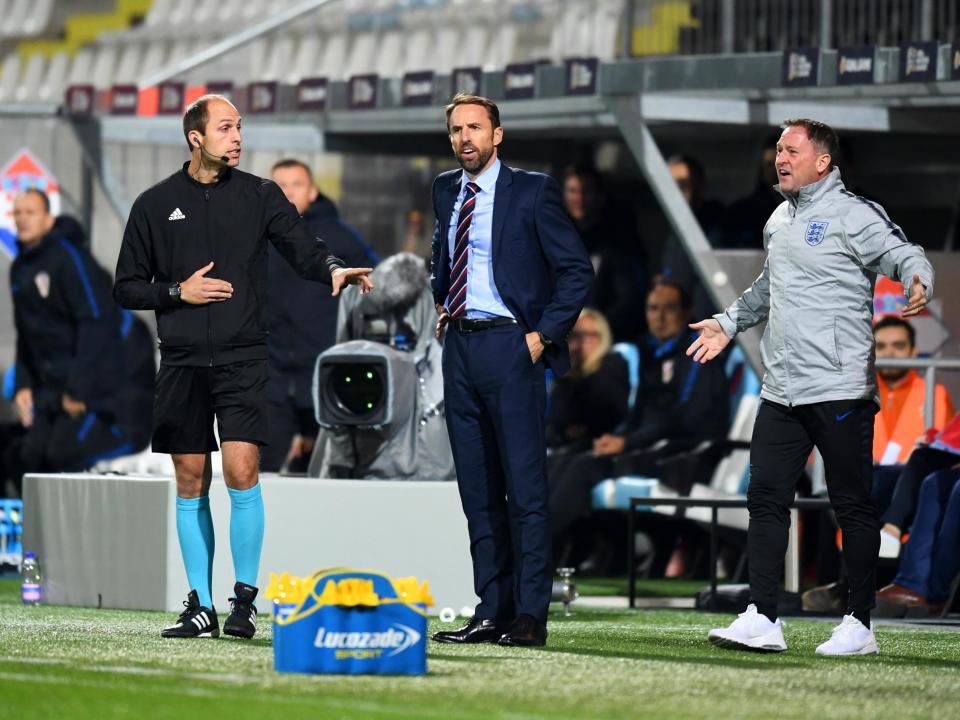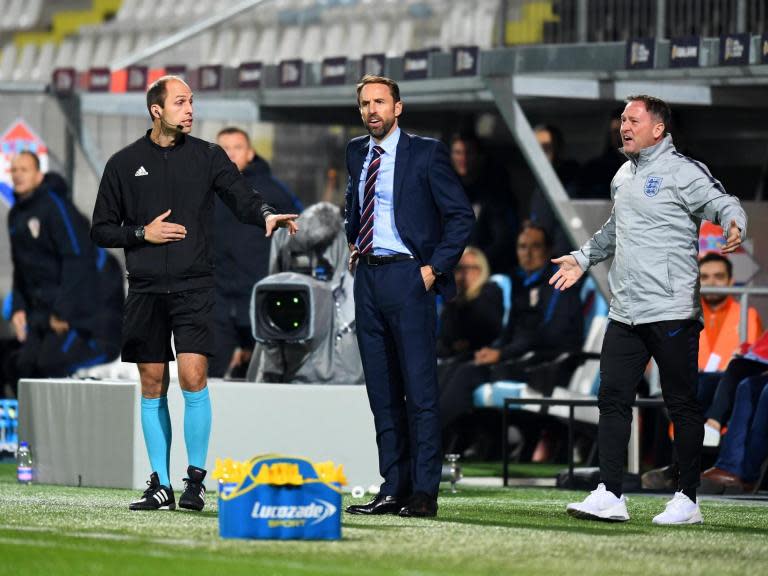Gareth Southgate's problem-solving talents bode well for England
In the middle of Gareth Southgate’s assertions about how well his side had adapted to the odd game in Croatia, there was also what felt like an admission.
The England manager hinted that he would not be looking to readily return to a three-man defence, the system that saw his side charge through Russia, and change the country’s recent record in international tournaments. Southgate intimated that it was really best as an introductory approach for players like Harry Maguire, and now that they’re comfortable at that level he can expand a bit.
“The 3-5-2 allowed some players to bed into international football,” Southgate explained. “People like Maguire, going into the World Cup, I felt we needed a bit more protection for the defence and the opportunity to get two forwards in the game.”
READ MORE: Premier League fans rate the season so far. Part one
READ MORE: Premier League fans rate the season so far. Part two
READ MORE: Netherlands 3 Germany 0: Van Dijk, Wijnaldum and Depay score
As happens with pretty much any system, though, it gradually led to another problem.
“In the last few matches, we've been pinned back in different ways, with three opponents pinning our five back. Against Spain that was the two wingers, and the wing-backs against Switzerland. We were outnumbered without the ball. We had trouble building up in the pressure… now the players are more established and look comfortable as a back four.”
This is undeniably one of Southgate’s great virtues, and something more pronounced in him than many other coaches. If management is ultimately about literally ‘managing’ the resources available to you to maximise their potential, he is showing quite a capacity for this. He is also displaying a deft ability to solve problems as they come.
England needed a structure that first gave them safety, so he put that in place. That was figured out, so he changed up again, but is now moving onto the next problem - albeit one that was also prevalent during the World Cup: creating chances from open play, and getting around that fundamental problem of not having a central midfield creator.
Southgate pleased with England progress despite Croatia draw
Even there, it could be seen that Southgate is working on a solution, and has a grasp of what’s possible.
“We’ve got some strong number-eights and wingers coming through, so it’s good to have the opportunity to play different systems.”
It could prove promising for England, but this is also one of the more general beauties of international football. You can’t just go out and buy a solution. You have to make do with what you’ve got and if you don’t have a certain player, so be it.
Michael Carrick recently pointed out on these pages how in his day the type of attacker missing was a dribbler. England now have a few of those, and the challenge for Southgate is to get them into the team.
Consider Scotland’s problem in this regard. For a country that has suffered such a fallow two decades in international football, they suddenly have two players who look top quality in Kieran Tierney and Andy Robertson - but both play in the same position.

Southgate has showed he isn't afraid to mix things up (Action Images via Reuters)
Southgate doesn’t have that issue, but he has worked out how to give England so many more options.
It is a rare tactical variability, and where an admission of weakness can become a real strength.

 Yahoo Sport
Yahoo Sport 













































